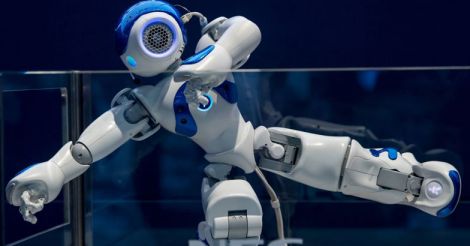A few weeks ago, on a visit to Pittsburgh in the US, I saw an Uber SUV with a spinning device mounted on top driving around the city. Uber tests its driverless vehicles in Pittsburgh, but they still have humans as backup behind the wheel.
Autonomous vehicles or driverless cars are barely taking off, when, the next day, I read about another disruption: in the air. Kitty Hawk, a Silicon Valley company demonstrated a prototype flying car or machine powered by batteries. Kitty Hawk is financed by Larry Page, the co-founder of Google.
Think of the disruption Uber could cause with autonomy: long-haul trucks without drivers, delivery, and more. Uber has already tested driverless trucks and made a delivery last year.
Welcome to the age of technological leaps and disruption, where AI, machine learning, autonomy, robotics, 3D, Internet of things (IOT), and big data are a reality. What’s more, this is already in our lives and most of us are benefiting from it in spite of knowing nothing about it.
The exuberance there is a far cry from the pressures faced by traditional technology behemoths in India. This is a different kind of disruption hitting technology companies in India. A mix of old business models, some politics, and probably slowness in embracing change have slowed the dream run of the pioneers. Consultants Mckinsey & Co. says Indian IT will loose between 1.75 to 2 lakh jobs annually for the next two to three years.
The Made in India dream
Indian IT has been at the crossroads for several years now. It desperately needs to reinvent and shed the cheap labor tag. Will we see the next big thing 'Made in India?' Chances are we will.
Experts say there are pockets of innovation in India. An ecosystem for entrepreneurship exists, and there is a growing appetite for risk, especially when entry barriers are low. This is fueling hundreds of startups across the country. With right advice and backing, things could change for these companies. Also, India is a huge market with a growing economy ripe for scale. What’s more, the reliance on export revenues will reduce in time.
Varsity-industry tie-ups
For this to happen, the stars need to align. First, for cutting-edge technology there needs to be serious collaboration between Indian universities and corporate India. We must build partnerships to get access to new thinking and technology.
While I was studying in Carnegie Mellon University (CMU), Pittsburgh, more than 20 years ago, there was excitement on the campus when researchers in the university attempted a cross-country trip with one of the first driver-less cars in the world. This is a reality now and Uber has its development center close to CMU.
RoBotany, smart farms
 NEC's NAO robot does a demonstration during the Mobile World Congress | Photo: Getty Images
NEC's NAO robot does a demonstration during the Mobile World Congress | Photo: Getty ImagesEven in non-glamourous fields such as agriculture, cutting-edge technology is finding ways to increase yield. RoBotany, started by a CMU student, is using robotics, automation, data, and software analytics to provide quality produce in smart farms around the year, irrespective of the season or location.
The gizmos and gadgets we see in movies are now being developed for our daily use. There are hundreds of startups in the race to develop the next big idea.
In addition, curricula in our universities need a fundamental change to focus on emerging technologies. Currently, there is no flexibility to foster new thinking.
Vital re-skilling
Next, re-skilling is a must and needs to be done on a war footing. Experts say about 70% could be re-skilled for the new era while others are skeptical and say, maybe, half the workforce can adapt.
Product focus
Finally, Indian companies need to invest in creating products, more than ever. There are several companies that are leaders in niche spaces and they are competing across the world. This trend will continue and we will see many more in emerging technologies from India.
The next frontier seems to be artificial intelligence (AI) and this is going to fundamentally change our lives. For better or worse is the question. Is India prepared for many of the advances in AI? Ethically, it could pose challenges to us.
We are already seeing new technology aiding and sometimes substituting humans in many areas such as manufacturing, surgery, and more. In this race to make everything better for us humans, there is a scary thought for many: will machines ultimately control us and cause chaos?
All these new technologies have huge implications on traditional business, ways of life, and society. We are already seeing machines replacing humans and as more of this happens, there will be shocks to Indian society and the impact on us is still unknown.
The next few years are crucial for Indian technology companies. We hope to see the next Google from India in a decade.

























 A woman views historical documents and photographs displayed in a high tech art installation | Photo: Getty Images
A woman views historical documents and photographs displayed in a high tech art installation | Photo: Getty Images